Join-in Group Silk Road China Tours
About Us | Contact us | Tourist Map | Hotels | Feedback
Silk Road Attractions
Qin Shihuang Emperor Tomb
When Qin Shihuang, the first emperor of China ascended the throne of Qin, construction of his final resting place began immediately. But when the emperor had conquered on an unprecedented scale and continued for 36 of the 37 years of his reign. Today the tomb of the Emperor is the reason to come to Xian.
Xi'an Muslim Street
As the name suggests, Muslim Street is where Muslims have lived since the Han Dynasty more than 1,000 years ago. The area used to be a trade hub along the ancient Silk Road. Nowadays it still serves as a place where Muslims sell food and snacks.
Gansu Provincial Museum
Located at Qilihe of Lanzhou City, the Gansu Provincial Museum is a local comprehensive museum. First built in 1956, the Museum's predecessor is the Science Education Hall of Gansu built in 1939. After several name changes, the Museum got its present name in 1956 and was opened to the public in 1958. The Museum covers a construction area of 180,000 square meters.
White Pagoda Hill
Located in the north of Lanzhou City, the White Pagoda Park owes its name to the amazing White Pagoda within it. With images of Buddha on its eight sides, the seven-story pagoda with a height of 17 meters (about 55.8 feet), is a pure white from top to bottom with the exception of the green top which greatly enhances the glamour of the whole building.
Bingling Temple Grottoes
Bingling Temple Grottoes is one of five Grottoes in China, lies in the north of where the Yellow River empties into the Liujiaxia Reservoir of Yongjing County, Lanzhou City.
Xiahe County & Sangke Grasslands
Xiahe county are famous for Labrang Lamasery & mysterial Tibetan Buddhist culture and beautiful Sangke grasslands and Daxiahe river sights. Xiahe provides a cool, quiet respite from both the sweltering sands and disorderly tour groups of Dunhuang in Gansu.
Labrang Monastery
First built in 1710 during the Qing emperor Kangxi's reign (1662-1722), the Labrang Lamasery (or Labrang Monastery) in Xiahe County, Gannan Tibetan Autonomous Prefecture, southern Gansu Province, is one of the six patriarchal lamaseries of the Gelugpa Sect of Lamaism in China (the other five bing Gandan Lamasery, Drepung Lamasery, Sera Lamasery in the Lhasa area, Tashilhungpo Lamasery in Huangzhong, Qinghai Province).
Dunhuang Museum
The Dunhuang Museum, located in the downtown of Dunhuang city, is a three-storey building where visitors can get a better idea of the Hexi Corridor on the ancient Silk Road China.
Dunhuang Movie & Film Ancient City
Dunhuang Movie Set, also known as Modeled Shazhou Town of Song Dynasty (960-1279), is about 25 kilometers (15.5 miles) southwest of Dunhuang City. The town, covering an area of 12,700 square meters (3.1 acres) was originally designed for the setting of the historical film Dunhuang in 1987.
Yadan National Geological Park
Yadan National Geological Park, located at 180 km northwest to Dunhuang, Gansu, is one of the world's largest area of yardang landform as significant natural heritage under State level protection.
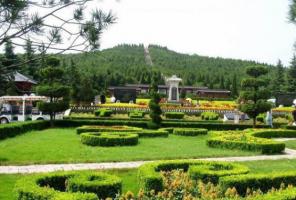

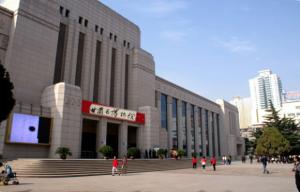
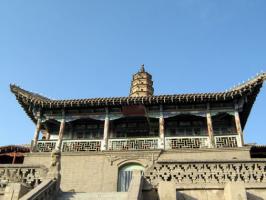
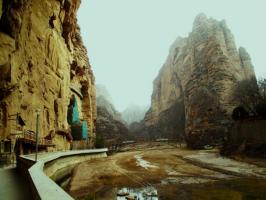
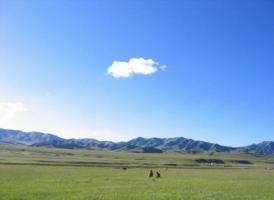
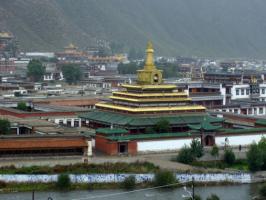
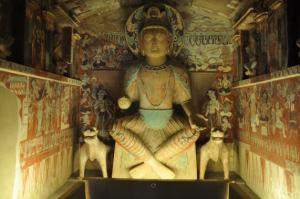

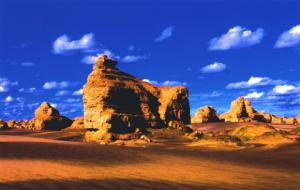
.jpg)

